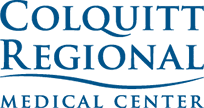

Posted on Aug 26, 2020
By: Jermaine Robinson, D.O.
What if I told you that nearly half of the country is walking around with a deadly disease that produces no symptoms and that, if left unchecked, can cause significant damage to the brain, heart or kidneys? Luckily, this disease is easily diagnosed by a common test performed by nearly every doctor’s office in the country. This test looks for hypertension, also called high blood pressure.
Blood pressure is the pressure of blood as it flows through the arteries throughout your body. Hypertension is when the pressure of blood against the arteries is higher than normal. When you go to your doctor, your blood pressure is measured by using a sphygmomanometer or blood pressure monitor which is an inflatable cuff that wraps around your upper arm. This cuff is attached to a manometer or pressure meter that measures your blood pressure. Blood pressure is usually recorded as the systolic blood pressure or top number “over” the diastolic pressure or bottom number. For example, the American College of Cardiology and the American Heart Association (ACC/AHA) defines normal blood pressure as less than 120 on top and less than 80 on the bottom, or 120/80 mmHg. Single blood pressures above 120/80 mmHg do not mean that you have hypertension. However, to be sure, your doctor will measure your blood pressure several times over several days or weeks to confidently know whether or not you have hypertension.
For most people, the cause of hypertension is unknown, however, several risk factors are associated with its occurrence including increasing age, obesity, family history, race, diet, and physical inactivity. If you are diagnosed with hypertension, depending on the severity, your doctor will recommend changes to your diet including promoting the DASH (Dietary Approaches to Stop Hypertension) diet or a low sodium diet in addition to limiting alcohol intake. Your doctor will also recommend that you exercise for 30 minutes at least 5 days a week. If diet and exercise do not improve your blood pressure, you may be prescribed blood pressure-lowering medications.
If you have hypertension, it is important to have your blood pressure check regularly to make sure that it is under control. The US Preventive Services Task Force (USPSTF), the ACC and the AHA recommend that adults without a history of hypertension have their blood pressure checked every year. Adults with risk factors for hypertension or with previously elevated blood pressures should have their blood pressure checked at least twice a year.
Your blood pressure needs to be checked at regular intervals because high pressure usually does not produce any symptoms unless severely elevated and, as such, many people do not know that they have it. If left untreated, hypertension can cause damage to important organs including the brain, heart, and kidneys. Hypertension increases the risk of heart attack, stroke, and chronic kidney disease. For these reasons, hypertension is known as the “silent killer”, and is also the reason why it is so important to detect hypertension early and treat it as soon as possible.








